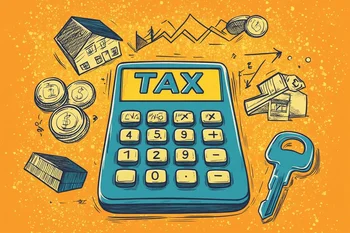Navigating the complex landscape of business taxes in Spain can be daunting for both new entrepreneurs and established companies. Understanding the various tax obligations is crucial for ensuring compliance and optimizing your financial strategy. This guide provides a comprehensive overview of the key business taxes in Spain, offering valuable insights for anyone looking to establish or grow a company in this vibrant market.
Overview of the Spanish Tax System

Spain’s tax system is characterized by a combination of national, regional, and local taxes. The structure is designed to ensure that businesses contribute fairly to public finances while supporting economic growth and development. For business owners, this means dealing with a range of taxes that vary depending on the nature of their operations, location, and revenue.
National Taxes
At the national level, businesses in Spain are subject to several key taxes. These include Corporate Income Tax (Impuesto de Sociedades), Value Added Tax (IVA), and Personal Income Tax (IRPF) for business owners and employees. Each of these taxes plays a critical role in the overall tax obligations of a business.
Corporate Income Tax (Impuesto de Sociedades)
Corporate Income Tax (CIT) is one of the most significant taxes that businesses in Spain must manage. It is levied on the profits of companies and is applicable to both resident and non-resident businesses operating in Spain.
Who Pays Corporate Income Tax?
Corporate Income Tax is mandatory for all companies that are considered residents in Spain for tax purposes. A company is considered a resident if it is incorporated in Spain or if its effective management and control are located within the country. Non-resident companies with a permanent establishment in Spain are also subject to CIT on the income generated within Spain.
Corporate Tax Rates
The standard Corporate Income Tax rate in Spain is 25%. However, there are reduced rates for certain types of businesses. For example, newly established companies may benefit from a reduced rate of 15% during their first two years of profitability. Additionally, small and medium-sized enterprises (SMEs) may also qualify for lower rates under specific circumstances.
Deductions and Incentives
Spain offers various deductions and incentives that can reduce a company’s overall tax liability. These include deductions for research and development (R&D) activities, investments in new technology, and contributions to employee pension plans. Understanding and utilizing these incentives can provide significant tax savings and support long-term business growth.
Value Added Tax (IVA)
Value Added Tax (IVA) is another crucial component of the Spanish tax system. It is an indirect tax levied on the consumption of goods and services and is applicable to most business transactions.
IVA Rates
The standard IVA rate in Spain is 21%, but there are reduced rates of 10% and 4% for certain goods and services, such as food, healthcare products, and cultural activities. Businesses must charge IVA on their sales and are responsible for remitting the collected tax to the Spanish tax authorities.
IVA Registration and Filing
Businesses operating in Spain must register for IVA with the Spanish tax authorities and file periodic IVA returns, typically on a quarterly basis. The returns must detail the amount of IVA collected on sales and the amount of IVA paid on business expenses, with the difference being paid to or refunded by the tax authorities.
Exemptions and Special Regimes
Certain transactions may be exempt from IVA, such as exports outside the European Union and intra-community supplies of goods. Additionally, there are special IVA regimes for specific sectors, such as agriculture, small businesses, and travel agencies. It’s essential to understand whether your business qualifies for any exemptions or special regimes to ensure accurate tax filing.
Personal Income Tax (IRPF)
Personal Income Tax (IRPF) is another key tax that business owners must consider, particularly if they are self-employed or if their business structure involves paying salaries to employees.
Who Pays IRPF?
IRPF is payable by individuals who are residents of Spain for tax purposes. This includes business owners, employees, and freelancers. Non-residents who earn income in Spain are also subject to IRPF on their Spanish-sourced income.
IRPF Rates and Brackets
IRPF is a progressive tax, meaning that the rate increases as income rises. The rates range from 19% to 47%, depending on the level of income. Business owners must ensure that they withhold and remit the correct amount of IRPF from employee salaries and any payments made to freelancers or contractors.
Deductions and Allowances
Like Corporate Income Tax, IRPF offers various deductions and allowances that can reduce the overall tax liability. These include deductions for mortgage interest, contributions to pension plans, and charitable donations. Understanding these deductions can help business owners optimize their personal tax situation.
Regional and Local Taxes

In addition to national taxes, businesses in Spain are also subject to regional and local taxes, which vary depending on the location of the business.
Autonomous Community Taxes
Spain is divided into 17 autonomous communities, each with the authority to impose certain taxes and offer specific tax incentives. These regional taxes can include additional income taxes, wealth taxes, and environmental taxes. The rates and rules vary from one community to another, so it’s important for businesses to be aware of the specific tax obligations in their region.
Local Taxes
At the local level, businesses may be subject to taxes such as the Business Activity Tax (Impuesto sobre Actividades Económicas, IAE) and property taxes (Impuesto sobre Bienes Inmuebles, IBI). The IAE is a tax on the economic activity of businesses and is based on the type of activity and the size of the business premises. The IBI is a property tax levied on the ownership of real estate.
Tax Compliance and Reporting
Compliance with Spain’s tax laws requires businesses to maintain accurate records and file timely tax returns. Failure to comply can result in penalties, interest charges, and other legal consequences.
Filing Deadlines
The deadlines for filing tax returns in Spain vary depending on the type of tax. For Corporate Income Tax, the return must be filed within six months and 25 days following the end of the fiscal year. IVA returns are typically filed quarterly, while IRPF returns are filed annually by June 30th.
Penalties for Non-Compliance
The Spanish tax authorities take non-compliance seriously and can impose significant penalties for late or incorrect filings. These penalties can include fines, interest on unpaid taxes, and in severe cases, legal action. It’s essential for businesses to stay on top of their tax obligations and seek professional advice if needed.
Optimizing Your Business’s Tax Strategy
Understanding and managing your business’s tax obligations is crucial for long-term success in Spain. By taking advantage of available deductions, incentives, and special regimes, businesses can minimize their tax liability and reinvest the savings into growth and development.
Seeking Professional Advice
Given the complexity of Spain’s tax system, it’s often advisable for businesses to seek professional tax advice. A qualified accountant or tax advisor can help ensure compliance, identify opportunities for tax savings, and provide guidance on the best tax strategy for your business.
Using Business Cards to Build Professional Networks
As you navigate the Spanish business landscape, building strong professional networks is key to success. A well-designed business card can be an invaluable tool in making connections and establishing your brand. At BusinessCardsSpain, we offer high-quality business cards that reflect your professionalism and help you stand out in the competitive Spanish market.

